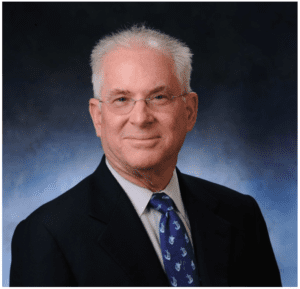
Stellar Lineup of Speakers
Experts from the Central Florida community present programs for adults interested in expanding and sharing their knowledge and experience. The variety of environmental and cultural topics stimulate appreciation of our unique community.
Held (usually) on the second Thursday of each month – doors open at 9:30 for coffee and refreshments — the program begins at 10 AM. These free events are wonderful opportunities to learn and interact with other curious minded folks.
- Ron Blair — “The Sustainable Residential Environment” March 14
- Dr. Marc Minno — “Insect Pollinators in Florida Gardens” April 11
- Barry Kirsch – “Fairy Robots of Restoration Cottage” (+Book signing) May 9
Let us know what you want to hear about, or what you can tell us about. Topics and speakers keep surprising us with their depth and scope.
Archive
Upcoming

Angela TenBroeck, a fourth generation farmer and international agricultural executive, works to bridge the gap in sustainable economic opportunity for small agricultural producers with a systemic approach to economic growth and increased efficiency getting produce from the farm to the consumer.
She shared her many projects and technological innovations. An early crusader for hydroponic agriculture, she is highly skilled in non-profit organizations, aquaculture and agriculture facility design, agricultural technology, and instructional design focusing on improving agricultural output and delivery.
She works on projects all over the world and is committed to changing the hunger landscape by assisting farmers and fighting food insecurity in underserved communities through team building and innovative technologies. She is a social entrepreneur RALLY SEA fellow and was the 2021 Florida Woman of the Year in Agriculture.

Mr. Tart’s presentation was not recorded.
Thomas Tart enlightened attendees on the positive impact Orlando Utilities Commission has had on the growth, development and quality of life in Central Florida during its 100-year history. Tart, a fifth generation Floridian and 30-year General Counsel for OUC, was a major force in water and electrical system projects in the early years of our fast-growing community. Program included a brief, historical video featuring Tart’s insights on these advances.
Tart attended the University of Florida and was a member of the Florida Gator football team. He went on to earn the University’s Lifetime Achievement Award. He received his law degree from Stetson University and started his law career working at OUC, eventually achieving the position of Vice President. Tart is also a Civil War buff and an expert on transportation in the Central Florida area.

Stacey Matrazzo, Executive Director of the Florida Wildflower Foundation, enlighten guests about the many species of wildflowers that bloom and grow at Mead throughout the year. She delved into the environmental benefits of native wildflowers and show examples of the incredible beauty these natural treasures offer. Stacey briefed us on the mission and work of the Florida Wildflower Foundation.
Stacey is an environmental educator with bachelor’s degree in environmental studies and a master’s degree in liberal studies from Rollins College, where she also serves as an adjunct professor. She is the co-author of the book Native Plants for Florida Gardens which she co-wrote with botanist, restoration ecologist and certified horticulturist, Nancy Bissett.

Watch SaraFaith’s presentation
SaraFaith Pekor taught us how to interact with nature in ways that can significantly reduce our stress levels, stimulate our health and restore our feelings of peace and well-being. An immersive experience led by Sarafaith, retired rehabilitation therapist with 22 years of experience as a stress management specialist. We learned how to “Breathe with The Trees” and explore a variety of enjoyable nature-based stress reduction techniques. Sarafaith shares the current scientific research about how stress affects our health and the ways in which even 10 minutes of time spent relaxing in nature can be a powerful prescription (Rx)for relief!
Sarafaith is also a Florida Master Gardener with specialized certification in Healthcare Garden Design. She is the Founder/Director of Seeds of Inclusion,a consortium of healthcare and horticulture partners providing nature-based wellness programs to underserved populations in the Central Florida community since 2015. Sarafaith teaches Therapeutic Horticulture through the UF/IFAS Extension Master Gardener Program and trains volunteers to participatein restorative gardening and nature-based activities specifically designed to benefit mental and physical health.
J an Clanton’s presentation was not recorded.
an Clanton’s presentation was not recorded.
She presented beautiful slides about Contemporary textiles which are now not limited to silks and satins. This presentation focused on the ingenuity of artists working without traditional media. Textiles can become sculpture in the hands of El Anatsui, a Ghanaian artist, using detritus like bottle caps as his medium. The quilters of Gee’s Bend,
Alabama, were so poor that they had no supplies either. Instead, they made masterpieces our of old, faded denim.
El Anatsui uses detritus and Gee’s Bend quilters use old denim to challenge the limitations of creativity.
Fascinating and beautiful presentation.

Winter Park City Commissioner Todd Weaver headlined the May Life Explorer series with a fascinating overview of the History of Sanitation. In his popular talk, he stunned his audiences when they learned how sanitation is unrivaled as a crucial factor in the development of human history — how sanitation practices have influenced the development of cultures throughout the world. Prior to the advent of modern sanitation techniques, some religious and medical practices sprang from ignorance of the real causes of disease and plague. No human endeavor has affected the life span, population growth or intellectual advancement of the human species like the knowledge and use of sanitation techniques. Who knew?
Weaver illustrated the evolution of sanitation practices from the ancient Persians, Romans, Greeks and early Scots to the trench-less wastewater conveyance technologies used today. He shared how our modern communities are shaped by continued advances in sanitation was water management practices.
An aerospace and mechanical engineer, Weaver founded Weaver Engineering Inc. and served as president for 22 years. He founded TruGrit Traction Inc., inventing and patenting a new type of wheel for pipe inspection robots, now used throughout the U.S. and abroad. Throughout his engineering career, Weaver has been involved in many high impact projects including work on the Space Shuttle, numerous aircraft and aerospace component designs, and\ even the Twister attraction at Universal Orlando.
Did you know that Mead BG is a favorite rest stop on the migration pathway for dozens of species of birds? Just like your favorite hotel on a well-traveled route, hundreds of warblers, tanagers, and other songbirds find the Garden to be a welcome place to rest, feed, and feel safe on their journeys. Kathy Rigling, the Education Coordinator for Orange Audubon Society and a Florida Master Naturalist, will explain the migration patterns that bring birds here for a nurturing community space as they make their way from north to south and back every early fall and spring. She will highlight special places in the garden where and when birds can be spotted. The migrating birds fly at night and wind, temperature, and storms can affect their flight paths. Rigling will also point out the habitats of some of Mead’s year-round resident birds, such as Barred Owls and hummingbirds, for birders to spot as they walk the garden. To help you enjoy more birds in your own backyard, Rigling will offer tips on how to attract different species using native plants, water features, and feeders.
Rigling, a UCF grad, has been the nature coordinator for Wekiva Youth Camp since 2015 and served a 35-year career as a middle school science teacher for Orange County Public Schools. She leads field trips and bird surveys, and is on the Audubon Society Bird Chat team which produces weekly Zoom programs.
Jack Rogers, a prize-winning, widely-published nature photographer, has been capturing birds and wildlife in their natural habitats through the lens of a camera for decades. He leads workshops and presents a variety of seminars here in Florida each year and teaches nature photography at Valencia College. He is also a lifetime supporter of Florida’s conservation organizations and his images may be seen on their websites, pamphlets and signposts across the state.
Rogers showcased his magnificent photos and details of how he started his career in photography and the ways he has been able to use his talent to promote conservation efforts. He shows photos taken from habitats around the area and highlights some of the best spots to capture bird photos, including some special shots from Mead Botanical Garden. He offers some basic hands-on tips for capturing nature in the wild that we may all be able to put to use…even with our cell phones!
 Watch Dr. Leslie Poole’s presentation
Watch Dr. Leslie Poole’s presentation
Dr. Leslie Poole, associate professor of environmental studies at Rollins College, presents the history of Florida’s environmental movement, and the critical role women played in creating an agenda for environmental protections and sustainable development — women environmental pioneers who, even before they had the right to vote, worked to gain protections for our state’s natural resources. They raised grassroots action and consciousness that still impacts Florida today. Hear about the lives of environmentalists like Doris Leeper, Clara Dommerich, and the towering legacy of the three “Marjories”: author Marjorie Kinnan Rawlings, scientist/activist Marjorie Harris Carr, and journalist/activist Marjory Stoneman Douglas. These leaders sparked an environmental movement to preserve our beautiful beaches, natural springs and subtropical wilderness from the onslaught of pollution, over-development, and dangerous pesticide abuse. Dr. Poole is an award-winning writer and historian, specializing in environmental issues and the significance women played in saving Florida’s natural resources.
 Watch Dr. Canan’s presentation
Watch Dr. Canan’s presentation
What decisions on Global Warming and Climate Change will we have to make this decade? And, for the rest of our lives? What are potential impacts of options relevant to our future, our children, our communities, our region? What does it mean that we are in a methane emergency? Are electric cars a valuable answer to global climate change?
The first session of the 2023 series will be led by UCF Professor Emerita Dr. Penelope Canan, an internationally recognized environmental social scientist. In addition to her lengthy teaching career at the University of Denver and the University of Hawaii, for two years she led Japan’s Institute for the Environment as Executive Director of the Global Carbon Project, (GCP).
Submitted by Catharine Coward, Nov. 2022
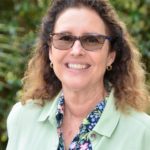 Watch Catherine’s presentation
Watch Catherine’s presentation
Extraordinary native plant expert and environmental consultant Catherine Bowman will share her vast knowledge of the native Florida plants that have been discovered at Mead Botanical Garden and used as a guide for species that can be re-introduced and cultivated in special communities for Mead Botanical Garden.
Topic: Explore Mead Botanical Garden’s Native Plants —Learn More About These Florida Treasures. Recognize these amazing ecosystem dynamics and how to add some beauty to your natural environment.
Submitted by Catharine Coward, Nov. 2022
The second program of Mead Botanical Garden’s Life Explorer’s speaker’s series drew a large audience to hear water management expert Tim Egan describe the flora and fauna of Howell Branch Creek, the primary water source running through Mead Garden. Egan shared maps and beautiful wildlife photos to describe how water connects nature and man in a continuous ecological cycle of life. His program illustrated how Mead Botanical Garden’s wetlands are filled with a wealth of wildlife riches for a greenspace set in a primarily residential and urban area.
Mead Botanical Garden is a highly populated birding location because of the creek and wetlands that give sanctuary, nesting, and feeding areas for migratory birds every year. Birds of prey such as red-shouldered hawks, owls, and the swallow tail kite make their homes in the garden. Water birds like wood storks, kingfishers, egrets and limpkins are residents at times throughout the year. In addition to providing habitat for a variety of birds, Egan shared that the area is a haven for bees, dragonflies, mollusks, reptiles, gopher tortoises, and freshwater turtles.
Mammals such as river otters, gray squirrels, and raccoons make their homes in the garden setting as well. All of the plant and wildlife species thrive in the area because of the water source that bonds them together.
Following the program, the question and answer session focused on more current water management issues affecting our community after the two recent hurricanes and the flooding that occurred in many areas throughout Central Florida. Several attendees asked questions about current flooded areas, particularly around Lake Killarney where flooding continues. Control issues such as dredging, stormwater drain improvements, weir adjustments, and other water management programs were discussed as ways of better keeping local lakes clean and at their healthiest water levels.
Submitted by Catharine Coward, Nov. 2022
The initial program of a new speaker’s series got underway November 17th with community leader and noted local historian Rick Baldwin leading the talk on Winter Park’s early years. Sarah Sprinkel and Emily Smith welcomed more than 45 participants to the first in a series of upcoming presentations. With humor, lively anecdotes and interesting historical maps, photos and city plans, Baldwin took the audience on a journey into the city’s past, and helped turn back time to highlight important milestones of Winter Park’s founding.
The factors that make Winter Park desirable today were the very same traits that drew people to the city in the 1800s — good weather, a dependable (rail) transportation system, freshwater lakes, and a workforce available to meet the needs of the new arrivals. As the industrial age boomed in northern cities like Chicago and New York, some of the same problems we are facing today impacted on those living there. Lung disease from air pollution and thick smog from industrial waste forced citizens with means to seek alternative places to live to improve their health and well-being. Winter Park’s clear air and lakeside land, set in a warm and comforting climate, drew visitors here as a respite from the cold, illness-plaqued north. Once here, early city developers sold them on settling more permanently. Over the years the city planners added more and more amenities to entice people to relocate — offering rail service, new hotels, churches, a college, and healthy outdoor activities.
The presentation was filled with names of early developers that are familiar to us today because of the names of our city streets and parks—Mizell, Comstock, Chapman, Chase, Morse, Lyman—to name a few. Baldwin reviewed the city’s early start and highlighted the founding of Rollins College, and the tremendous cultural addition Hugh McKean and Jeanette Genius McKean brought with the development of the Morse Museum and its world renowned Tiffany collection.
Baldwin gave focus to the significance of Hannibal Square, the black community originally established on the west side of town, during the years of Reconstruction and then the era of Jim Crow. The divisions between black and white townspeople were still very prevalent in the “separate but (not so) equal” situation. The Black community’s separate businesses thrived and the Black citizens were a readily available work force for homes and businesses in the growing city within a convenient walking distance.
A well-respected Black leader and publisher of the only area newspaper, Gus Henderson, was responsible for gathering enough members of the west side community together to sign a petition to incorporate Winter Park as a city in 1885. In the city’s first election, two Black alderman were elected, but after Jim Crow laws, the Square was written out of the city until after 1920.
Another less known fact Baldwin shared was that 2 freak hard freezes occurred in 1895 and 1896 that wiped out orange groves and other businesses, and virtually shut down the city for many years. Winter Park had to re-group and was fortunate to have leaders with money and experience in city planning to rebuild and improve the city as it grew to be the gem we have today.
The last portion of the program was devoted to a “Relate” exercise led by moderator Aida Diaz. She guided participants in discussion and sharing exercises designed to help them get to know each other and enhance a sense of community among those attending.
Submitted by Catharine Coward, Nov. 2022
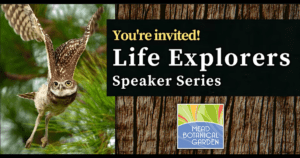
Life Explorers Series: The Sustainable Residential Environment
Thursday, Mar 14 | 10 AM – 11:30 AM
The Sustainable Residential Environment with Ron Blair







Life Explorers Speaker Series: OUC-A History of Water and Electricity
Thursday, Feb 8 | 10 AM – 11:30 AM
Regenerative Agriculture and the Future of Food with Angela TenBroeck.







Life Explorers Speaker Series: OUC-A History of Water and Electricity
Thursday, Jan 11 | 10 AM – 11:30 AM
OUC – A History of Water and Electricity in Central Florida with Tom Tart.







Life Explorers Speaker Series: Wildflowers of Mead and You
Thursday, Nov 16 | 10 AM – 11:30 AM
Wildflowers of Mead and You with Stacey Matrazzo







Life Explorers Speaker Series: Nature Rx – A Perfect Prescription for Reducing Stress
Thursday, Oct 19 | 10 AM – 11:30 AM
Nature Rx – Nature Rx – A Perfect Prescription for Reducing Stress with Sarafaith Pekor







Life Explorers Speaker Series: Radical Textiles
Thursday, Sep 21 | 10 AM – 11:30 AM
Radical Textiles with Jan Clanton.



